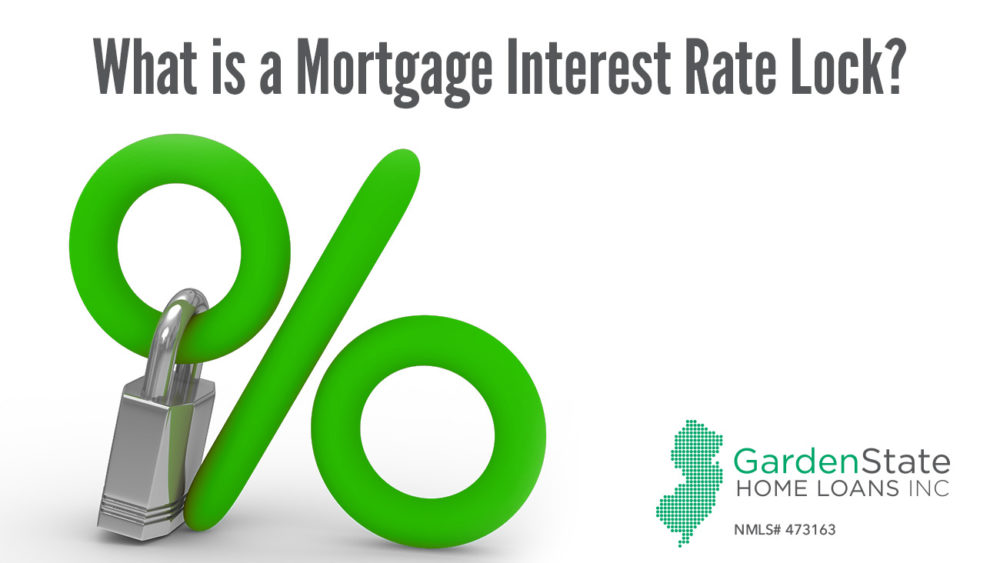What is a Mortgage Rate Lock?

A mortgage rate lock is an agreement between a borrower and a lender to secure a specific mortgage interest rate for a set period of time — typically spanning between 10 to 60 days. It also sets a number of “mortgage points“. Mortgage points are payments submitted to the lender in exchange for future reduced interest rates.
A rate lock protects borrowers from possible fluctuating rates during the period of the lock. For example, if a borrower and lender lock in a rate at 4%, and mortgage interest rates rise to 4.25%, then the borrower still receives the lower interest rate. However, due to ever-changing mortgage rate, borrowers may secure a higher mortgage interest rate than current market mortgage interest rates. For instance, if the interest rate is locked in at 4%, but the market interest rate falls to 3.875%, the borrower must pay the lender 4% rate as previously set.
When should I lock my rate?
While a rate lock can be negotiated throughout the mortgage application process, it is recommended to set a locked rate after securing your new home. After arranging your new property with your real estate agent, contact a lender for a mortgage loan. Do research and discuss with your lender about the best mortgage interest rate for you.
Rate locks typically last between 10 to 60 days. It is vital to process the rate lock within the selected time period. This will prevent a possible increased rate. For example, if your mortgage interest rate is 3.50% for 30 days, and your loan gets processed in 35 days and the rate increase to 4%, you are now stuck with 4% interest rate. Some lenders may offer extensions on your rate lock to avoid this problem, however, in most cases you must pay the increased rate.
What does a rate lock cost?
The costs of rate locks vary based on a variety of factors such as your lender, the property you are purchasing, the size of the loan, etc. Some lenders may lock mortgage interest rates for free. However, other lenders may charge a fee or simply add to your mortgage interest rate. The longer the rate lock, the more you are charged for the lock. Unless you’re absolutely certain of the closing date on your new home, paying for extra security of a longer rate lock is the best option.


Comments are closed.